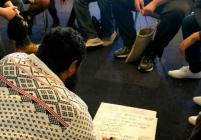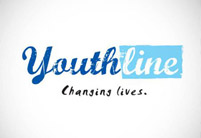Identity
Identity
Topics in this section:
- National identity
- Cultural identity
- Ethnic identity
- Religious identity
- Gender identity
- Sexual identity
- Interpersonal identity
- Vocational identity
‘Identity’ is a term to describe your own understanding of who you are. How you identify can influence what you do, how you look, what you believe and how you are perceived by others.
National identity or ‘nationality’ is a term used to describe the sense of belonging or being connected that people living in the same country might share. This can give people a sense of ownership and loyalty but not necessarily by political beliefs or divisions.
Your cultural identity refer to learned and shared values, beliefs and attitudes that shape the way we see things and often the way we behave. Your cultural identity will be shaped by your environment. For example, every family, school, workplace, church, marae, suburb, and city has its own culture or way of being. There are also subcultures that exist, depending on your social circles and interests. For example, within your broader school culture, the drama group and the netball team (for example) will have a subculture and its own way of being.
To belong to an ‘ethnic group’ or be of a certain ‘ethnicity’ often refers to a group of people who identify with each other either because of common ancestry or genealogy, or by common cultural, linguistic, religious or territorial traits.
Religious identity is how you identify with a specific religious group or religion and how that sense of connection with that religion or religious group influences how you see yourself.
‘Gender identity’ is basically a description of whether you identify as a man or a woman or somewhere in between. Some people don’t feel the same on the inside as they look like on the outside. For example, a person born as male may actually think, feel and identify as female. These people are called “transgender” or “trans”. There are heaps of trans people in New Zealand. To find out more, check out these fact sheets and the Rainbow Youth website
It’s best to think about sexual orientation and gender identity as falling on a spectrum with everyone falling somewhere on the spectrum.
Check out these awesome descriptions of the different identity spectrums people fall on:
• http://itspronouncedmetrosexual.com/2011/11/breaking-through-the-binary-gender-explained-using-continuums/
• http://curious.org.nz/wp-content/uploads/2013/04/2013-17-02-Queer-101-Third-Edition.jpg
Sexual identity is how someone thinks of themselves in relation to sexuality. While sexual orientation is specifically about who you are in relation to who you’re attracted to, sexual identity can be seen as a bit broader than that. It is about your thoughts, behaviours and ideas about sex and sexual attraction.
Ever thought about the role you play in your group of friends or family? Interpersonal identity is how someone thinks of themselves in relation to the relationships and social connections they have, including family, romantic relationships, and friendships.
What you choose to do as a career and in your free time can help to shape how you see yourself. In the future, you might identify in the future as a kite surfing banker or a music teacher. This is one of the reasons some people feel a bit of pressure to work out “what you’re going to be” in the future.
Need to talk to someone?
Kia ora - tamariki ma
Contact us, we are here to help!


























